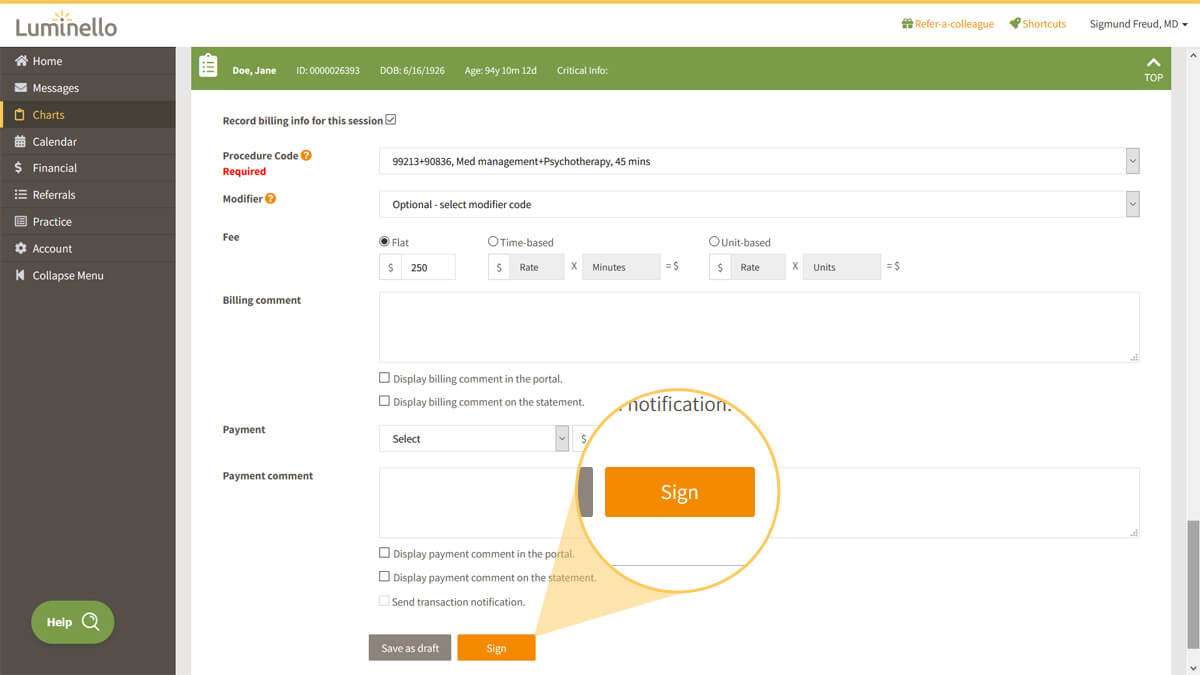Birdsong appeared to be louder during the UK’s lockdown due to a decline in man-made noise.
While it is pleasant to listen to, could something bigger be going on inside our brains when we hear tweeting and singing from parks and gardens?
Dr Eleanor Ratcliffe, a lecturer in environmental psychology at the University of Surrey, looked at how bird sounds may restore attention and alleviate stress.
Eleanor says, ‘I was inspired to do this research because of an opinion piece in the Guardian by Pete Brash. He was speculating on how bird sounds might help people through the darkest days of winter.’
The first of her three studies consisted of an online test with 174 British residents listening, rating, and commenting on 50 different bird sounds from the UK and Australia.
The research found some bird sounds offered relief from mental fatigue and stress. This depended on the type of bird and what respondents associated it with.
For example, one participant found the gentle sound of chickens comforting following stress. It reminded her of when she would dig in the garden and her chickens would gather around, waiting for her to throw slugs at them.
Another participant associated the sound of wood pigeons with long, hot summers during her childhood which prompted feelings of enjoyment.
However, some bird sounds can also have the opposite effect. For example, pigeons in cities can be perceived as an annoyance and hearing their sounds could provoke a sense of irritation.
Cultural perception also played an important role. One participant associated owls with superstition, fear and death, however in many cultures’ owls are revered, symbolising wisdom, intelligence, and endurance.

Sedge Wren.
Photo:
Ben Cvengros/Audubon Photography Awards
Birds Tell Us to Act on Climate
Pledge to stand with Audubon to call on elected officials to listen to science and work towards climate solutions.

This audio story is brought to you by BirdNote, a partner of The National Audubon Society. BirdNote episodes air daily on public radio stations nationwide.
Transcript:
This is BirdNote.
In a children’s hospital in Liverpool, England, the sweet sounds of birdsong carry along the hallways. It’s a recording of the dawn chorus from a nearby park, and the intent is to calm the anxious young patients.
This hospital is one of a number of places in Europe where birdsong recordings are used to foster an uplifting and therapeutic experience. Research does show that natural sounds can help relieve stress.
Where some noises—like TV, traffic, and random conversations—make it hard to concentrate, the songs of birds may make it easier. One expert thinks that birdsong relaxes people physically while stimulating them cognitively. The body relaxes while the mind becomes alert.
Institutions have begun to put this logic to work. A primary school in Liverpool played a soundscape of birdsong and other nature sounds after a lunch break, when students would normally be drowsy. This appeared to help them concentrate and become more alert. And birdsong is now used at Schiphol Airport in Amsterdam, where a lounge plays bird sounds to help travelers relax before flights.
So if you’re feeling stressed out, try playing a bit of birdsong. Or better yet, step outside and listen to the real thing.
For BirdNote, I’m Mary McCann.
—————————————————————————————————
Credits:
Written by Bob Sundstrom
Bird sounds provided by The British Library. Recorded by P Riddett.
BirdNote’s theme music was composed and played by Nancy Rumbel and John Kessler.
Producer: John Kessler
Managing Producer: Jason Saul
Associate Producer: Ellen Blackstone
© 2018 Tune In to Nature.org August 2018/2019 Narrator: Mary McCann
If you love birds, you’ll be happy to hear that their chirps and tweets can help you relax when you are feeling anxious – and just in general too.
Why is bird music great for relaxation and anxiety?
Bird sounds enforce a human’s innate connection with nature; when birds sing, we know we are safe – when they quiet down, we panic.
This instinctive familiarity with bird songs plays a subconscious role in our stress recovery.
Music therapy has increased in popularity and time, and time again, the impact of music on our well-being has been proven to be nothing other than remarkable.
Read more below on how using bird music can help you feel like your best self.
What Is Bird Music?
The sounds birds make include calls and songs.
The more structured vocalizations are usually songs to attract a mate or defend territory while shorter, less rhythmic sounds are calls used to communicate with each other.
These vocalizations can be listened to alone or accompanied by various musical instruments to reduce stress and promote relaxation.
That being said, not all birds’ sounds may be soothing – the raucous calls of crows or magpies, for example, may have the opposite effect on those who prefer the gentle sounds of thrush or warbler.
What is Sound Therapy?
Sound has been used to heal and calm people for thousands of years.
Himalayan singing bowls used in Asia during prayer and meditation are said to have positive effects on one’s health and well-being.
This is just one example of age-old instruments from all over the world being applied as healing instruments.
Sound therapy is based on the premise that we are all made up of energy frequencies, and audio frequencies can interact with our body’s energy to rebalance our systems.
Since music is basically just organised sound, it can be deconstructed to have powerful effects on our physical and psychological well-being.
Ailments sound therapy can help:
- Anxiety
- Depression
- Post-traumatic stress disorder
- Autism and learning disabilities
- Dementia
- Behaviour and psychiatric disorders
Five other benefits of sound therapy
- Lower stress responses
- Decrease in mood swings
- Pain management
- Improves sleep
- Lowers blood pressure
In essence, sound therapists use sound frequencies to ‘rewire’ your brain and stimulate healing.
Let’s get scientific for a second, the rhythms and frequencies used during sound therapy shifts your brain from normal consciousness (beta state) to a relaxed consciousness (theta state), and even to a state where internal healing is triggered (delta state).
How does bird music help in sound therapy?
Our daily lives are filled with buzzing people, bright billboards, cars hooting and rocketing past – all part of the urban jungle most of us call home.
The things we see, hear and experience moment after moment not only change our mood but impact us on a deeper physical level; it alters the way our nervous, endocrine and immune systems function.
It doesn’t take a genius to know that the constant stimulation of city life puts stress on our minds and bodies.
Listening to birdsong is a wonderful way to reconnect with nature and shift your focus away from the clutter and chaos that is often part of our daily lives.
According to Eleanor Ratcliffe from the University of Surrey in her thesis examining the restorative perceptions and outcomes associated with listening to birds, bird sounds have the ability to transport yours to nature.
In addition to that, it also gives you a feeling of ‘really being there’ even if you’re stuck in a tiny apartment in New York.
So, not only does bird music affect us positively on a fundamental level of sound frequency, but it also has the capability to make you think you’re in a natural environment, which will in and of itself, reduce stress, anxiety and depression.
Why Is Bird Music So Powerful For Relaxation And Reducing Anxiety?
In today’s fast-paced world, it is vital to make lifestyle choices that will reduce stress and ultimately prolong your life.
It has been revealed that listening to slow tempo, low pitched music with no lyrics can reduce stress and anxiety in people who are to undergo invasive surgery.
It also lessens the requirement of subsequent pain medication.
Now, the above are some proven benefits of listening to ordinary music. Just think how powerful it will be to add bird sounds to the mix?
Bird song and calls have been found to be the sort of natural sound that most people associate with perceived stress recovery.
During semi-structured interviews conducted with twenty adult participants, Eleanor Ratcliffe determined the following reasons why bird song helps with relaxation and reducing anxiety.
1. Invokes positive memories
Bird sounds associated with enjoyable or special events help combat stress and anxiety and can ease depressive episodes, as it creates positive emotions linked with particular places and times.
2. Shifts the focus
Listening to bird music during trying times moves the focus away from the problems at hand and leads to calm.
3. Change of stimuli
We get used to the everyday sounds of city life. When we listen to bird music, it provides a break from the emotions associated with our surroundings. This short reprieve will help reduce stress.
4. A welcome distraction
Bird music has the ability to effortlessly take you out of your current environment without you having to move a muscle.
As being a symbol of nature, bird song transports you far from the daily hustle and bustle and removes you from day-to-day demands that may be causing anxiety.
During these interviews, 186 occasions of natural sounds helping to ease stress and anxiety were identified – 35% of the sounds mentioned were bird sounds.
It is clear that people are aware of the health benefits of listening to bird music!
Although science hasn’t yet caught up with bird music believers’ confidence in its healing properties – since most support is anecdotal – the evidence speaks for itself.
Bird music is by no means a miracle cure and should still be used in conjunction with medicine as prescribed by your general practitioner.
That being said, bird music is noninvasive, there aren’t any side effects (except maybe turning up the volume too high when wearing earphones), it’s easy on the pocket and convenient – not to mention completely natural.
Pardon the pun.
How Does Bird Music Work Scientifically?
Bird music can clearly have positive effects on a person’s mood, mental health and physical well-being.
But what real scientific proof is there of music in general’s impact on mental states?
Below you will find some studies that back up what people have been saying for years – music has healing properties.
1. Changes brain function
Research conducted at Standford University found that listening to music can have the same effect on the brain that taking medicine has.
Through using electroencephalographs (EEGs) – a device that measures electrical impulses in the brain – it was established that music with a strong beat stimulates the brain, while slow beats encourage the brain to relax by promoting a meditative state.
When you listen to faster beats, it can lead to deep concentration.
According to a psychologist who was one of the participating researchers, the human brain is usually locked into a specific level of functioning.
But by speeding up or slowing down the brainwaves, it is easier for the brain to change its speed in reaction to external and internal stimuli.
2. It increases blood flow in the brain
Thomas Budzynski, an affiliate professor of psychology at the University of Washington, found that the mind enjoys new stimuli.
Whenever the brain experiences new sights or sounds, blood flow increases, equalling a better cognitive response.
Some anecdotal evidence indicates that this increase in blood flow may help in repairing damaged brain cells.
3. Stimulates the release of internal opioid peptides
In a review, titled The Neurochemistry of music, it is mentioned that listening to music lowers the need for pain medication due to the euphoria often experienced when listening to specific music.
This release of endogenous opioid can be likened to use of cocaine – but luckily with bird music, it’s free and legal!
4. Increases Dopamine levels
Dopamine is responsible for body movements but also plays a role in a person’s emotional response.
For this reason, should music raise dopamine, it will be a very good thing, especially if you’re suffering from mood swings, depression, anxiety, and other mental illnesses or associated symptoms.
Dopamine Chemical Structures
By using neuroimaging technology, the central dopamine release while listening to enjoyable music was measured – and the results are positive.
The right type of music does increase dopamine.
No wonder listening to music is one of life’s most pleasurable – and relaxing – activities.
Examples of Bird Music To Listen To
If you don’t live in the country where there are plenty of birds singing their songs and chirping the day away, don’t fret, bird music is widely available and if not free, very cost-effective.
Below are five bird music tracks you can listen to for free on YouTube.
If you love bird sounds and piano, your ears will be delighted to hear this soothing 3-hour long masterpiece by Peder B Helland.
Here you will only be listening to birds sing and chirping without any musical instruments accompanying their vocalizations.
The sound is crystal clear, and you will quickly be transported to a lush green field surrounded by trees filled with very vocal birds.
Nightingale, Blackbird, Chaffinch, Cuckoo and more birds will help you forget any problems you might be facing – even if only for two hours.
This video is only 18 minutes long but contains the sounds of 27 birds. The diversity of these songs and the accompanying emotional responses is fascinating to experience.
Who doesn’t want to listen to three hours of Nightingale singing, accompanied by sounds of a rippling river? Peace and tranquillity are guaranteed while listening to this soundscape.
How To Use Bird Music To Reduce Stress & Relieve Anxiety
So, you’re still here and want to know more about using bird music to reduce stress and relieve anxiety.
To help you get the best out of your respite from daily life, here are three top tips to follow.
Choose a birdsong that is relaxing to you
Fact of the matter is, what is comforting and peaceful for one person, may be annoying and tensing to another.
If you’re not familiar with birds and don’t already have a favourite repertoire or two, you will have to explore these sounds.
As you saw in the previous section, YouTube is an excellent resource.
Find bird sounds and chirps that reduce tension – not create it.
Find a quiet place
This is not absolutely necessary, but it is advisable, especially if your aim is to relax and beat any anxiety.
A place where you can go without any distractions is suggested.
You want to be able to relax completely and not worry about what is going on around you.
If, however, you want to use bird music to help you focus and concentrate, listening to birdsong while working can increase your cognitive abilities.
Block out the light
Bird music has the ability to transport you to your favourite cabin in the woods, or a spot next to a lake.
To make this shift in reality more believable to your brain, wear a sleep mask so that you can focus on the music and imagine yourself soaking in the sun while birds chatter in the trees.
Bird music is easily accessible and is an easy and natural stress reduction tool that you can basically use at any time and anywhere.
Don’t overthink it.
Find birds that melt away your worries with their songs and chirps, load some birdsongs on your phone, and listen to it when you want to.
You will soon be your new calm and collected self.




